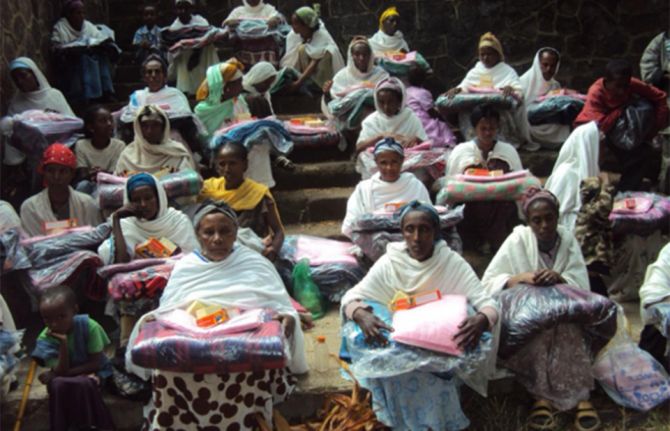




Update
African First Ladies reaffirm commitment to work towards ending the AIDS epidemic
01 February 2016
01 February 2016 01 February 2016Ahead of the United Nations High-Level Meeting on AIDS, which will take place in New York in June, the Organisation of African First Ladies against HIV/AIDS (OAFLA) has called for the response against the epidemic to be stepped up.
Meeting in Addis Ababa, Ethiopia, OAFLA First Ladies recognized the huge progress already made in reducing the impact of HIV, but warned against complacency, calling on stakeholders to increase investment in the response. The First Ladies said more resources were required to prevent new HIV infections among children and keep their mothers healthy and alive and to broaden access to testing services. They also said that increased resources were necessary in order to ensure that people access treatment immediately if need be, to allow young people, particularly young women and girls, to access combination prevention services, and to end gender-based violence, which increases the risk of HIV exposure.
Addressing the OAFLA General Assembly, UNAIDS Executive Director Michel Sidibé congratulated the First Ladies for playing a transformative role by championing social justice and keeping the issue of HIV high on the political agenda. He added that achieving zero mother-to-child transmission of the virus, reaching universal health access for children and ending the AIDS epidemic by 2030 were possible if the right decisions were made now.
Quotes
“Let us use our voices to bring an end to the AIDS epidemic among children and improve the sexual health and rights of adolescents.”
“Promoting human rights and gender equality is an end in itself but also critical to effective and sustainable HIV responses. Protecting and promoting women’s sexual and reproductive rights are central to enabling women to protect themselves from acquiring HIV.”
“We need your leadership now more than ever to end the AIDS epidemic by 2030 by protecting our girls, by ensuring that young women and girls have access to reproductive health services and rights and by ending violence against women and girls.”



